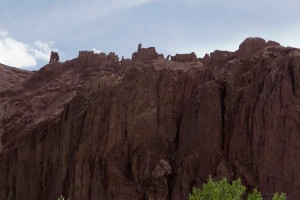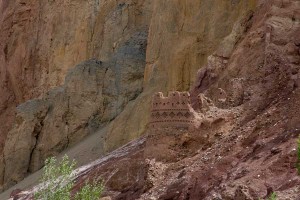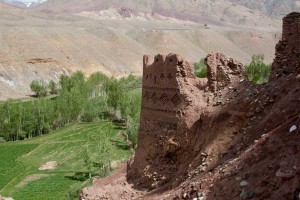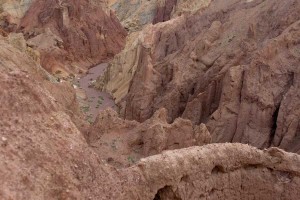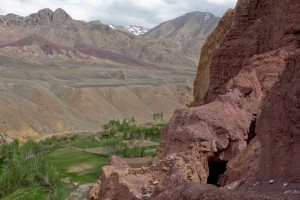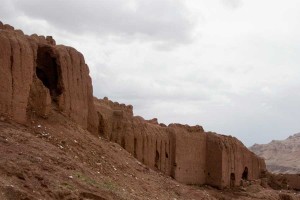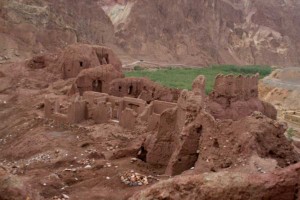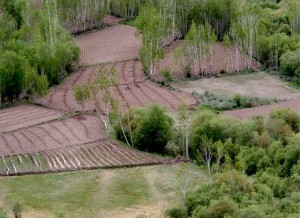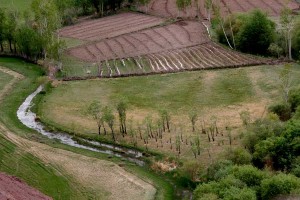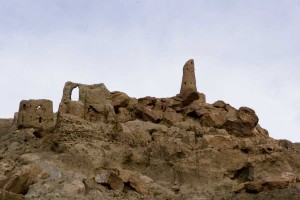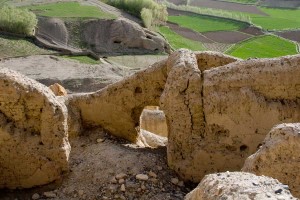Archive for July, 2010
Bamiyan Province, Part 3
Saturday, July 17th, 2010
About 15km east of Bamiyan along the Silk Road lie the ruins of the ancient city of Zohak. Made entirely of red-mud bricks, it is also known as The Red City. Sitting atop a 350′ cliff of of red rocks overlooking the confluence of the Bamiyan and Kalu rivers, it guards the Eastern entrance of the long narrow Bamiyan Valley.
One would think that just being up so high would be defense enough, but in addition along the steep path were various guard towers and finally a tunnel one must pass through to reach the top.
Although the present remains were built in the 12th century by the Shansabani Kings, there is also evidence that during the time of the Hephthalite Huns in the 6th century, there was already a massive complex here. In fact, I saw pottery shards from the Kushan Dynasty period, which was dominant in this area during the 1st-4th centuries. In modern times, it became a Mujahidin stronghold during the war against the Soviets. At its peak, 3000 people resided here.
The story of how the city got its name was best told by Nancy Hatch Dupree:
“Zohak first appears in the Shahnama as a noble prince of Arabia, a devoted son well-beloved by his people. He became, however, possessed of the Devil who induced him to usurp his father’s throne whereupon the Devil appeared disguised as a loyal subject who asked to kiss the new king on the shoulders in token of his complete submission. No sooner had he done so, and vanished, than two black serpents thrust their heads out from where the kisses had been placed. Attempts to cut them off only resulted in their immediate return and their increased demand for human brains, the only food they would accept.
At the same time that Zohak was being seduced by the Devil, civil war broke out in Iran and Zohak marched in as the champion of one faction and was enthroned as the emperor of Iran. For a thousand years his rule brought terror and chaos to the land, but then the hero Fraidun was born. After many escapades, Fraidun finally succeeded in taking Zohak prisoner whereupon he took the dragon-king to a far off mountain peak and left him there to die. The Shahnama ends the tale here but, typically, Afghan legend goes on to elaborate by saying that, deprived of their daily meal of brains, the serpents turned on Zohak, bit into his scalp and fed upon his brains until he died.”
My guide told me that people believe that this city with its fertile valleys was the royal abode of Zohak.
I’ve read that in 1222, Genghis Khan sent his favorite grandson to deal with the Shansabani kings who responded by slaying the young general. As revenge, Genghis sent his warriors to storm the citadels. Every living thing in the valley was slaughtered. My guide told me that this actually happened in Gogola, The City of Screams which overlooks the Buddha site in Bamiyan.
Posted in Afghan Women's Project, archeology, AWP 2010, environment, Other | 1 Comment »
